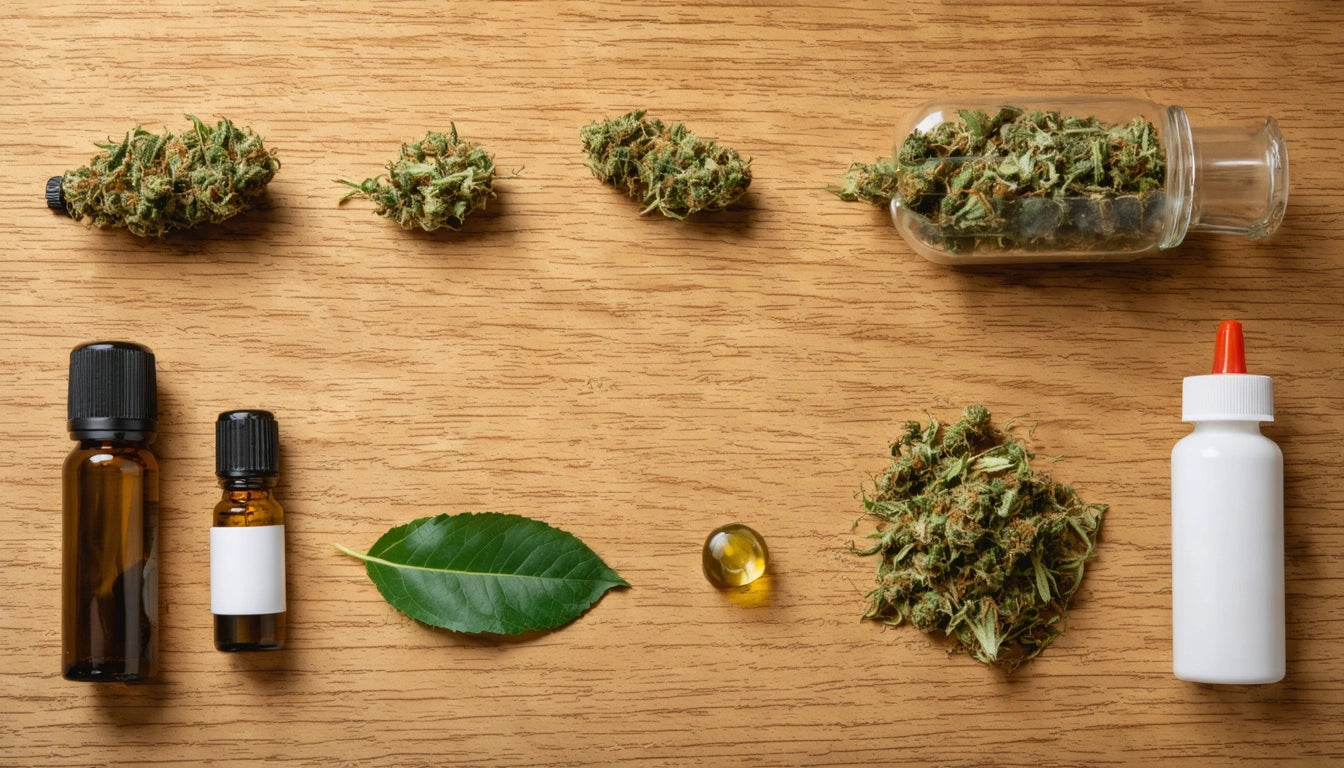Can You Overdose on Weed: Understanding the Risks and Effects
Cannabis consumption has increased significantly as legalization spreads across states and countries. With this rise comes important questions about safety, particularly whether you can overdose on weed. Understanding the true risks of cannabis consumption helps users make informed decisions and practice responsible use.
Defining Cannabis Overdose: Facts vs. Myths
The term "overdose" typically conjures images of life-threatening medical emergencies associated with substances like opioids or alcohol. With cannabis, the definition requires nuance. A cannabis "overdose" refers to consuming more THC than your body can comfortably process, resulting in unpleasant and sometimes frightening symptoms.
Unlike substances that can cause respiratory depression or cardiac arrest in high doses, cannabis affects the body differently. The endocannabinoid receptors that THC binds to are not located in brainstem areas controlling respiration, which explains why fatal outcomes from cannabis alone are virtually non-existent.
Symptoms of Consuming Too Much Cannabis
While a cannabis overdose isn't typically life-threatening, it can cause severe discomfort and distress. Common symptoms include:
- Extreme anxiety or paranoia
- Rapid heart rate
- Increased blood pressure
- Nausea and vomiting
- Disorientation and confusion
- Hallucinations or delusions
- Severe dizziness
- Panic attacks
In some cases, users may experience what's known as "greening out" - a state of physical discomfort combined with psychological distress. Some individuals may also experience temporary psychotic symptoms in rare cases, particularly those with underlying mental health vulnerabilities.
Factors Affecting Cannabis Tolerance and Reaction
Individual Physiology
Several factors influence how someone might react to cannabis, including:
- Body weight and composition
- Metabolism rate
- Previous cannabis experience
- Underlying health conditions
- Concurrent medications
Consumption Method
How you consume cannabis significantly impacts the risk of overconsumption. When smoking using pre-rolled cones or joints, effects are felt quickly, allowing users to self-regulate. However, edibles present a higher risk of overconsumption because:
- Effects can take 30 minutes to 2 hours to manifest
- The duration is typically longer (6-8 hours vs. 2-3 hours for inhalation)
- Dosing can be inconsistent in homemade products
This delayed onset often leads people to consume more, thinking the initial dose wasn't effective, resulting in stacked doses and potential overconsumption.
Can You Die From Overdosing on Weed?
The question "can you die from overdosing on weed" is common among both new and experienced users. According to the National Institute on Drug Abuse and multiple scientific studies, there have been no documented cases of death solely from cannabis toxicity.
The LD50 (lethal dose for 50% of the population) for THC would require consuming approximately 1,500 pounds of cannabis within 15 minutes, which is physically impossible. As this analysis of cannabis fatality risks explains, the margin of safety for cannabis is remarkably high compared to many other substances.
However, this doesn't mean cannabis use is without risks. Secondary effects can lead to dangerous situations:
- Impaired driving increasing accident risk
- Exacerbation of underlying cardiovascular conditions
- Potential complications when mixed with other substances
- Falls or accidents due to impaired coordination
Managing Cannabis Overconsumption
If you or someone you know has consumed too much cannabis, several strategies can help manage the situation:
Immediate Steps
- Stay hydrated with water
- Move to a calm, comfortable environment
- Use reassuring language and remind them the effects are temporary
- Focus on steady breathing
- Use black pepper (contains terpenes that can counteract THC effects)
- Try CBD if available (may moderate THC effects)
When to Seek Medical Help
While most cannabis overconsumption episodes resolve without medical intervention, certain symptoms warrant professional care:
- Severe vomiting that won't stop (risk of dehydration)
- Extreme anxiety or panic that doesn't respond to calming measures
- Psychotic symptoms (severe paranoia, hallucinations, delusions)
- Irregular or extremely rapid heartbeat
- Loss of consciousness
Medical professionals typically provide supportive care rather than specific antidotes, focusing on managing symptoms until the cannabis is metabolized. Knowing how to recognize and handle smoking too much weed can prevent unnecessary emergency room visits.
Safety Practices for Responsible Cannabis Use
Preventing cannabis overconsumption is preferable to managing its effects. Consider these safety practices:
- Start with low doses and go slow, especially with edibles (5mg THC or less)
- Wait at least 2 hours before consuming more edibles
- Be aware of product potency and THC percentages
- Avoid mixing cannabis with alcohol or other drugs
- Use in safe environments with trusted people
- Understand your personal tolerance and sensitivity
- Consider products with balanced THC:CBD ratios for milder effects
Understanding how marijuana affects the body and mind is crucial for responsible use. The cannabis experience varies greatly between individuals, and what works for one person may be overwhelming for another.
While a traditional fatal overdose from cannabis is virtually impossible, the unpleasant effects of overconsumption are very real and can be frightening. By approaching cannabis with respect for its potency and understanding your personal limits, you can minimize risks and enjoy its potential benefits safely.











Leave a comment
All comments are moderated before being published.
This site is protected by hCaptcha and the hCaptcha Privacy Policy and Terms of Service apply.